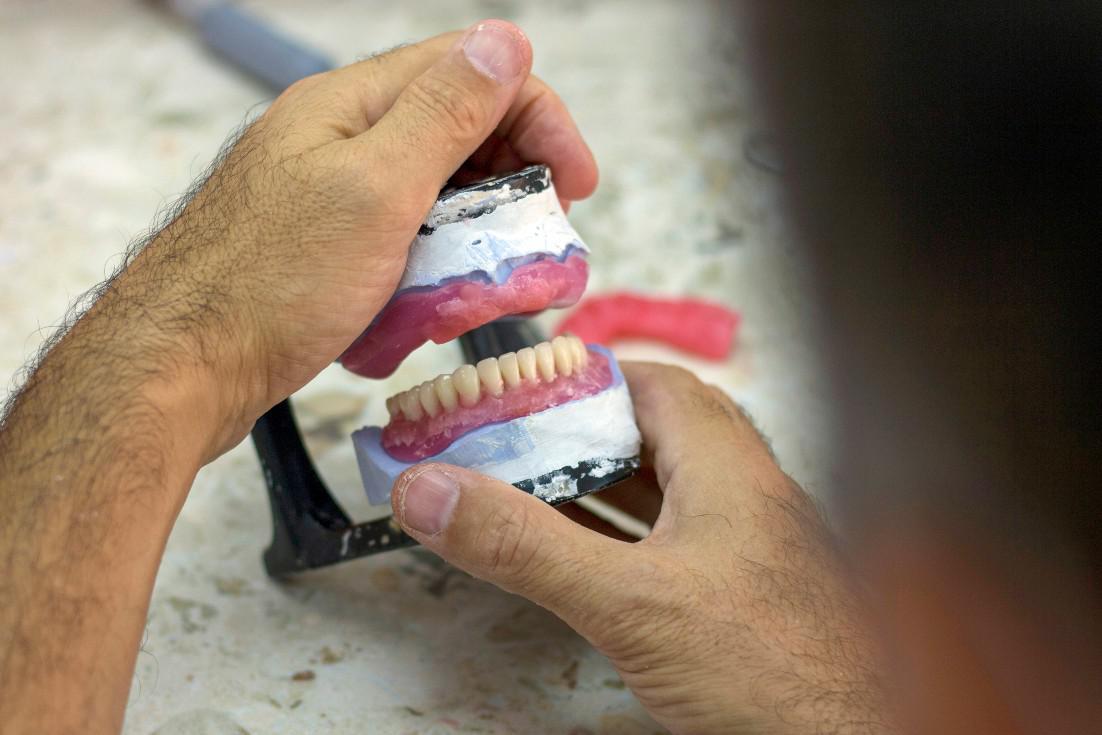 We’ve often been told that less is more, but sometimes more is needed. This is often the case when patients are dealing with multiple or complex dental issues. These cases, whether a result of oral health habits, trauma, genetic conditions, or years of teeth grinding, may require a full-mouth reconstruction.
We’ve often been told that less is more, but sometimes more is needed. This is often the case when patients are dealing with multiple or complex dental issues. These cases, whether a result of oral health habits, trauma, genetic conditions, or years of teeth grinding, may require a full-mouth reconstruction.
What is full-mouth reconstruction?
Full-mouth reconstruction (also known as full-mouth restoration) goes beyond improved cosmetics and involves a combination of dental treatments to rebuild or restore your teeth, gums, and jaw function. Depending on individual needs, full-mouth reconstruction can include any number of restorative and cosmetic dental procedures, including:
- Dental bonding
- Dental bridges and crowns
- Dental fillings
- Complete or partial dentures
- Dental veneers
- Dental inlays or onlays
- Dental implants
- Root canal treatment
- Tooth extraction
- Periodontal disease treatment
How do I know if a full-mouth reconstruction is right for me?
Patients can find themselves in need of full-mouth reconstruction for a variety of reasons. You may have had an accident that damaged your teeth, experienced widespread decay, or spent years grinding your teeth. Full-mouth reconstruction is not a light undertaking and is generally recommended for patients who have extensive damage to their existing teeth. Issues commonly addressed with a full-mouth reconstruction include:
- Broken or cracked teeth
- Decayed teeth
- Temporomandibular joint (TMJ) syndrome
- Genetic conditions, such as dentinogenesis imperfecta or ectodermal dysplasia
- Gum disease
- Infection
- Difficulty chewing normally or properly cleaning your teeth
To be a good candidate for full-mouth reconstruction, patients must also meet a certain baseline of health. For example, if you have an infection, it will need to be treated before reconstruction begins. Additionally, depending on the procedures required for your mouth restoration, you may also need to be able to tolerate certain dental procedures or types of anesthesia. Furthermore, it’s critical that patients be committed to attending appointments and adhering to their dentist’s instructions.
Schedule an Evaluation
Every patient is unique, and the best way to find out if full-mouth reconstruction is right for you is to come into our office for an evaluation. Our team is committed to ensuring the best patient experience possible. Contact us today to schedule an appointment.

